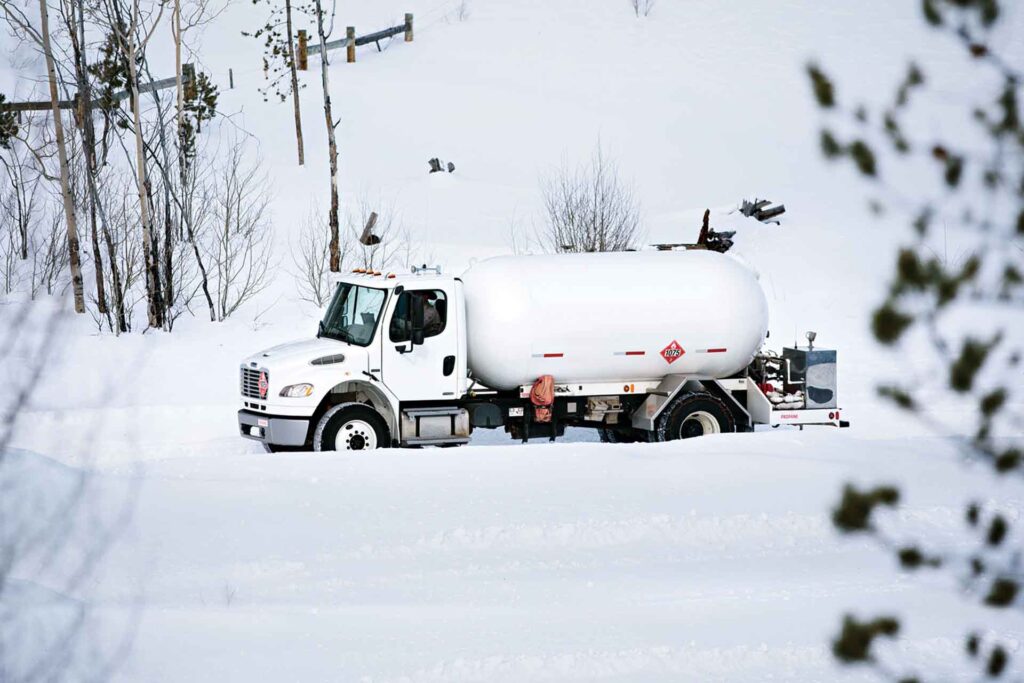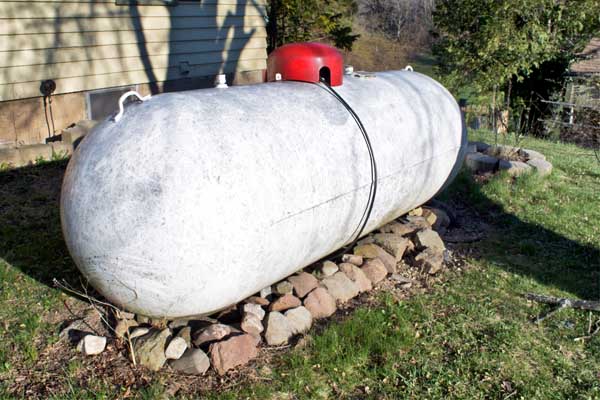Contents
Concerns occasionally arise among homeowners, particularly during chilly seasons, regarding the potential freezing of propane. However, does propane freeze?
Fortunately, there exists a multitude of strategies to mitigate this concern. Propane, known for its eco-friendliness, is an excellent residential heating option, boasting reduced carbon monoxide emissions compared to numerous energy alternatives. This environmental advantage positions it as a strong choice, especially for individuals residing in remote areas or regions where conventional energy sources may be less accessible.
In this comprehensive article, we discuss propane’s susceptibility to freezing in cold weather. We will explore the potential concerns, provide insights on what to watch out for, and offer practical steps to ensure a worry-free experience with propane.
Do I Have to Worry About My Propane Freezing?
The phenomenon of frozen propane is exceptionally rare, and it’s an issue seldom reported by our valued customers. However, this doesn’t imply that propane remains unaffected during cold spells or harsh winter conditions.
Instead, the primary concern lies in the impact of cold weather, which can trigger unforeseen consequences for homeowners.
When Does Propane Freeze?

The freezing point of propane is often a concern due to its prevalence in discussions.
Propane’s freezing point is an astonishingly low temperature, at minus 187.7 degrees Celsius or minus 306.4 degrees Fahrenheit. This freezing point remains consistent, unaffected by storage conditions or methods.
Propane undergoes a significant transformation into a solid state at its freezing point, which understandably raises concerns among users. When this occurs, propane ceases to flow from the storage tank to your home, propane grill, or backup generator, leaving you in a challenging situation.
Yet, for homeowners, this particular issue is relatively uncommon. On the other hand, the boiling point of propane can present a somewhat perplexing aspect that merits further consideration.
Why the Propane Boiling Point Takes Center Stage And Not The Freezing Point
While the freezing point of propane garners attention, it’s the boiling point that truly warrants consideration. Propane’s boiling point is consistently set at minus 42 degrees Celsius or minus 43.6 degrees Fahrenheit, regardless of storage circumstances.
It’s crucial to prevent your propane storage tank and its contents from reaching these frigid temperatures.
Why the Propane Boiling Point Matters
The boiling point marks the threshold where propane cannot vaporize.
Vaporization is a crucial process for propane users, as it facilitates combustion and is a vital heat source. It ensures that the propane supply effectively reaches the heating system, enables the generator to ignite when required, and keeps your swimming pool comfortably warm for those refreshing morning swims.
The Significance of Propane Tank Pressure
Propane storage tanks rely on internal pressure for their proper operation. As outdoor temperatures drop, the temperature of the propane within the tank decreases as well, causing it to contract and occupy less space. This contraction leads to creating a vacuum inside the tank, resulting in a decrease in pressure, measured in PSI (pounds per square inch).
An optimal PSI range for propane tanks typically falls between 100 and 200, which ensures proper performance.
However, exceeding this range with PSI levels above 200 can pose some concerns.
Conversely, when the PSI falls below 100, the propane may encounter challenges in staying in its liquid form. This becomes especially risky when the combined effects of decreasing temperature and tank pressure occur, potentially leading to propane solidification. In this solid state, propane cannot flow through the lines to reach heating systems, stoves, or other connected appliances, rendering them inoperative.
4 Steps to Safeguard Your Propane Supply
Below, we share a few tips on how to keep your propane supply in good condition:
Ensure Your Propane Tank is Adequately Filled

Maintaining a propane tank that is only 70% full can pose challenges in maintaining the necessary PSI levels for propane to remain in its liquid state.
A rapid decrease in PSI can occur when temperatures plummet, especially with dwindling propane levels. This abrupt drop can disrupt the propane supply to heating systems, cooking appliances, generators, and other essential equipment.
Consistent propane deliveries prevent these disruptions and ensure that your propane storage tank never reaches critically low levels.
Preventing Snow and Water Accumulation on the Tank Exterior
Propane storage tanks are susceptible to moisture buildup from the atmosphere, precipitation, and freezing conditions, leading to ice formation. This temperature drop can occur when surface snow melts and subsequently refreezes as ice or sleet, posing risks to regulators and valves.
To counter these issues, adopt a daily routine during cold seasons to clear away snow and water from the tank’s surface and surroundings. You can prevent freezing from taking hold by ensuring that snow and water are absent.
Protecting Your Propane Tank with a Cover

To maintain optimal tank temperature, consider using a non-electric storage tank cover. Depending on the tank’s size, an insulated blanket may also be viable.
Both of these protective measures can effectively prevent ice formation. However, it’s important to note that heated blankets or covers should be avoided for safety reasons.
Close the Propane Tank Valve When Inactive
Leaving the tank valve open can lead to freezing and lower the internal tank temperature due to exposure to cold lines.
To mitigate potential cold weather problems, close the valve when propane is not in use.
In Conclusion
Although the freezing of propane tanks is rare, extreme weather conditions can adversely affect stored propane.
To safeguard against such challenges, it is advisable to take proactive measures, including ensuring your tank never runs low, maintaining optimal pressure levels, using insulating covers, and regularly clearing snow, water, or ice from the tank’s surfaces. These precautions help ensure a continuous and reliable propane supply, even in the harshest weather conditions.
Lastly, when your propane tank is not in use, closing the valve is always prudent. This simple step prevents lower temperatures from affecting the tank and aids in maintaining the necessary pressure to prevent propane from solidifying.
Call Taylor Energy for Exceptional Propane Delivery Services
When superior propane delivery service is what you seek in Northern Connecticut, Taylor Energy stands ready to meet your needs. We are committed to delivering high-quality fuel promptly, affordably, and with a friendly touch.
Trust in our consistent, unbeatable service for all your propane needs. Contact us today to explore our diverse delivery plans and financing options tailored to suit your requirements.
In addition to our propane services, we proudly offer a comprehensive range of HVAC services to elevate your home’s comfort, indoor air quality, and energy efficiency. Our offerings span heating and cooling tune-ups, repairs, installations, and so much more. Don’t hesitate – call Taylor Energy now for an enhanced home comfort experience!
You can click here to contact us now or call us at (860) 623-3308 to find out more! Click the link to view our service area.

Related Articles:
